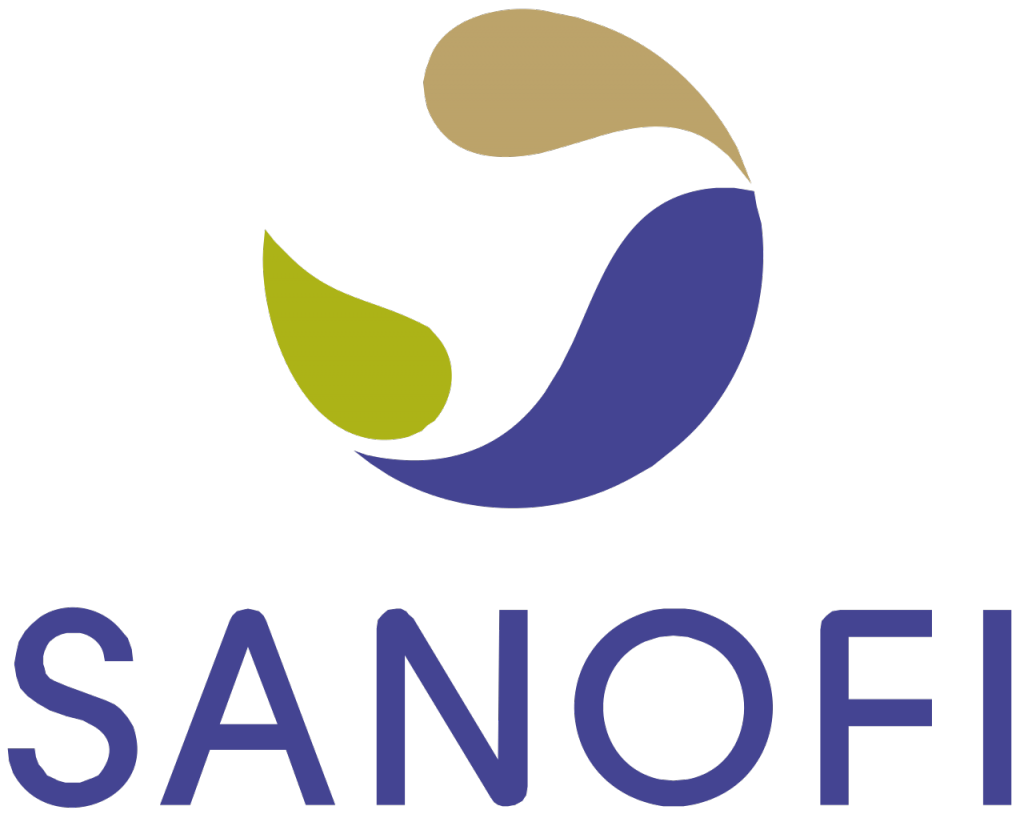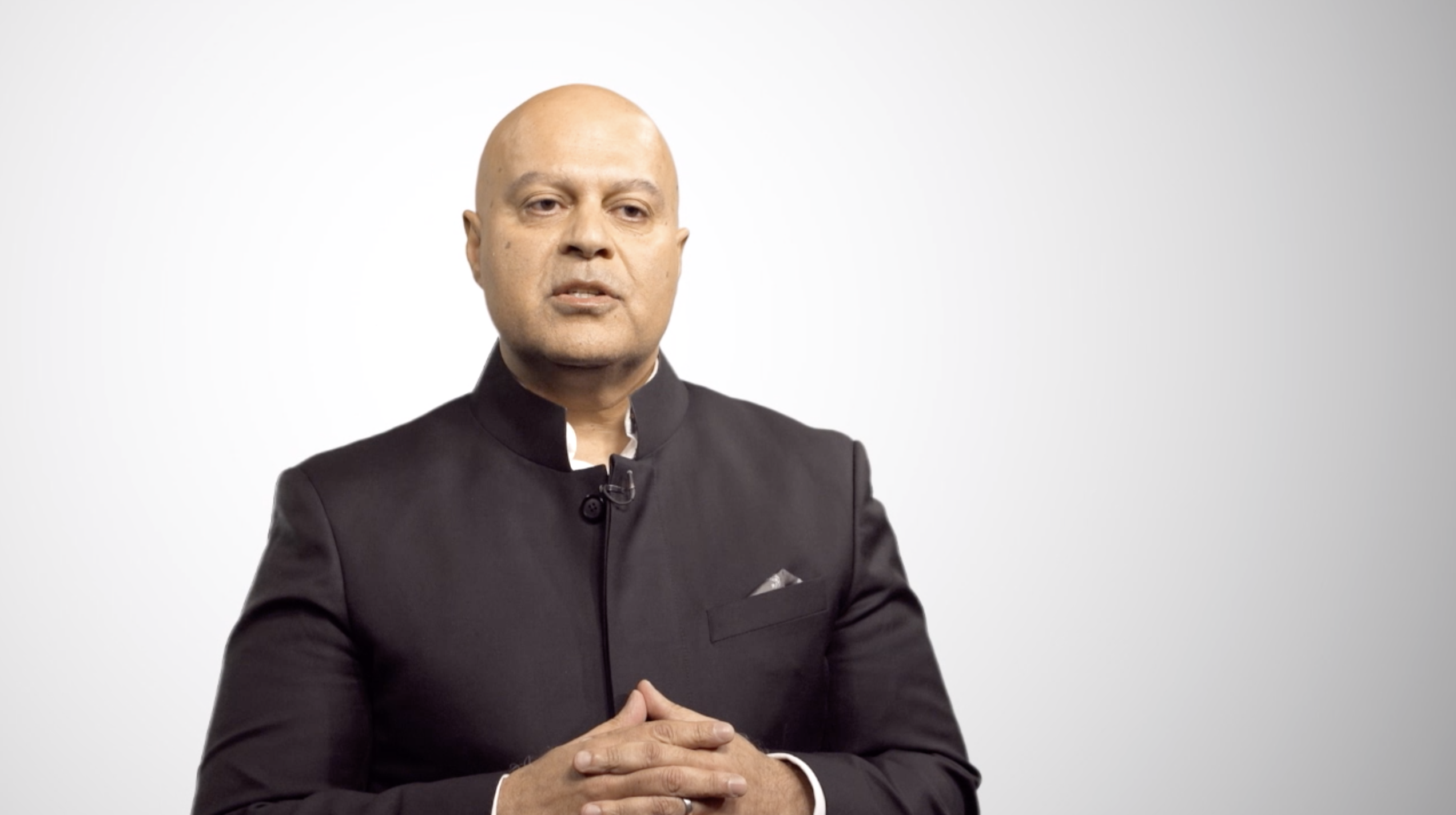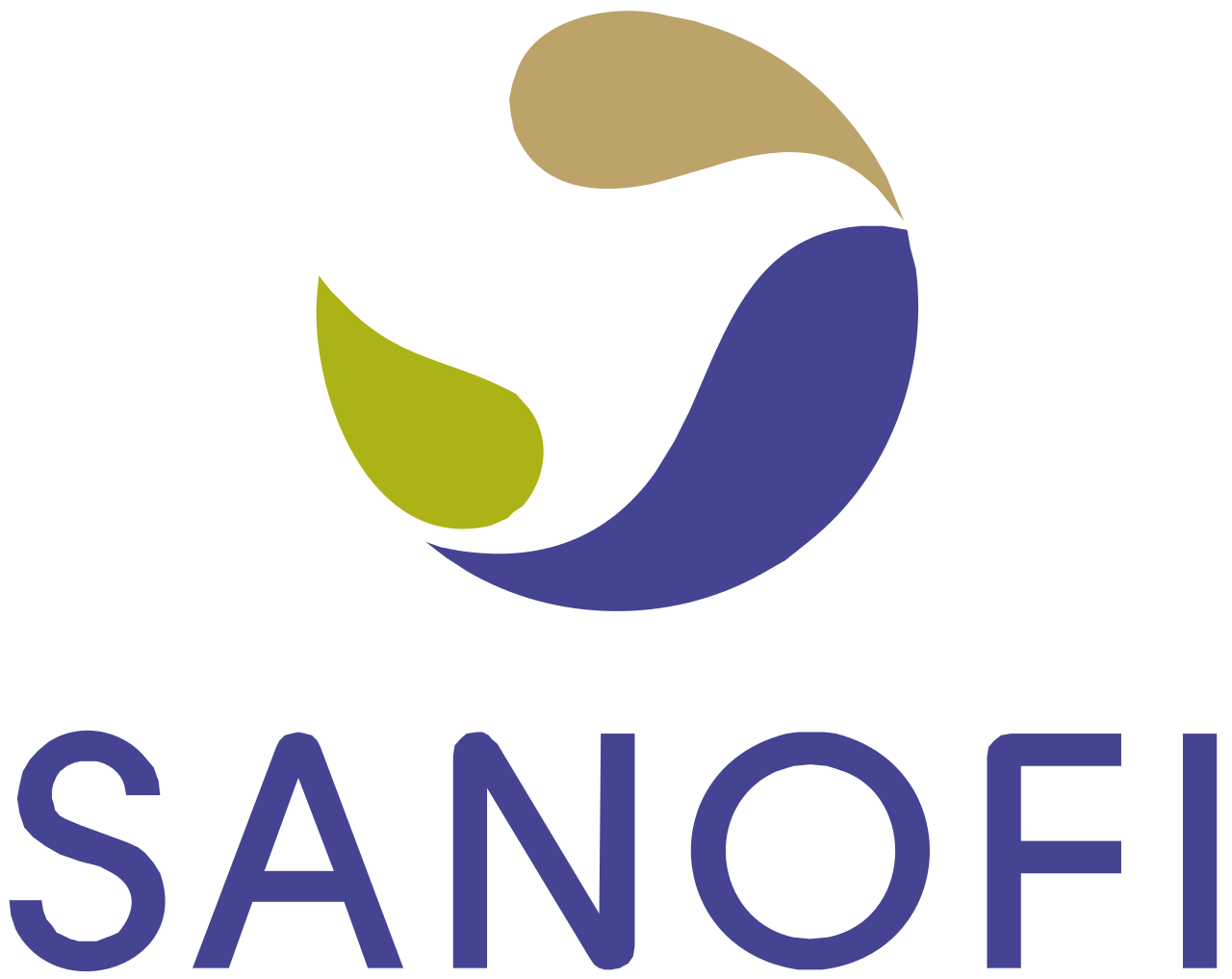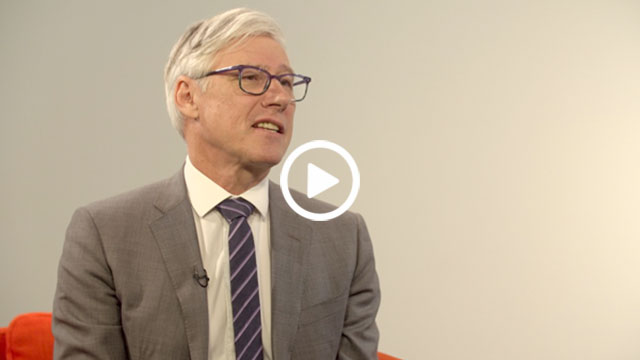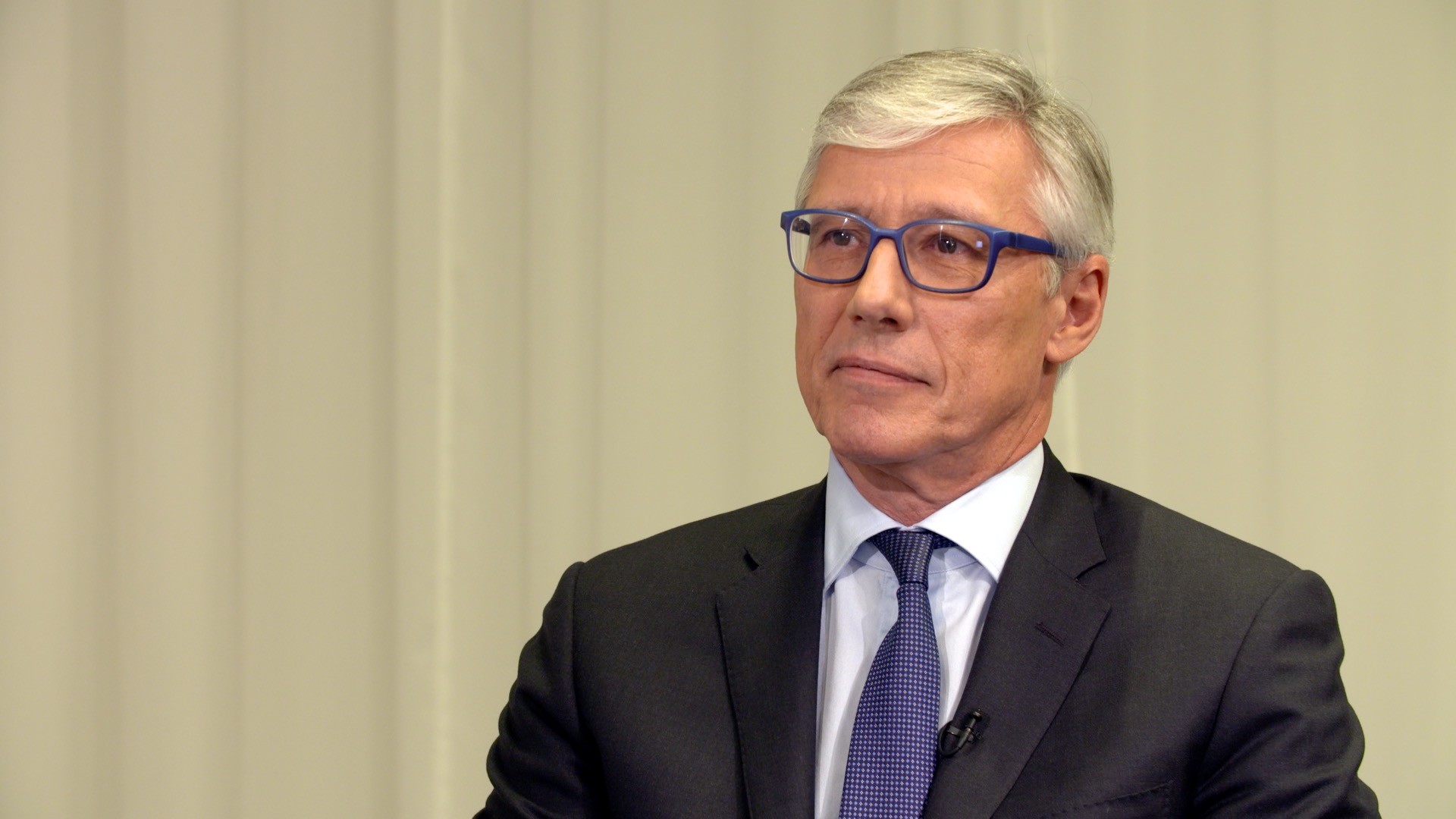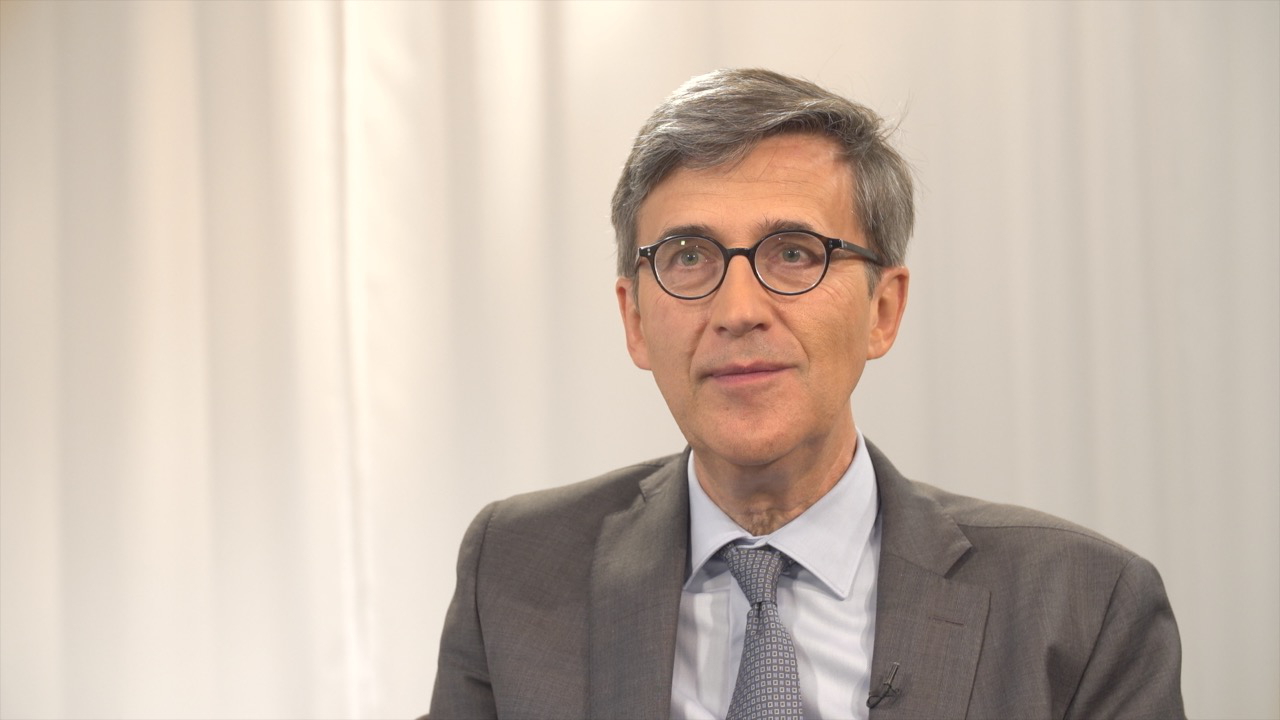EuroBusiness Media (EBM): Sanofi-aventis, one of the world’s largest diversified healthcare companies, reports its first quarter earnings for 2011. Jerôme Contamine, welcome. You are the CFO of sanofi-aventis. What is your update on the Group's performance in the first quarter?
Jérôme Contamine (JC): Well, actually, on a like-for-like basis this quarter leads to a difficult comparison because of the lack of A/H1N1 vaccine sales. However, with 7.8 billion euros, which includes the sales of Merial for the first time, we have basically reached a level of sales which is equal to the level we reached last year, without A/H1N1 sales, and this despite 570 million euros of lost sales due to generic competition, mainly on Lovenox® and Ambien® CR in the US and also on Plavix® and Taxotere® in Europe. I’m really particularly pleased with the result of the growth platforms, which have increased by more than 15% on a like-for-like basis - once again excluding A/H1N1 - and they now represent close to 60% of the overall sales of the company and they really represent the future of the company. In terms of profit, the business EPS reached 1.66 euros per share, which is slightly down against last year, excluding A/H1N1, by 6% and even stable on a published exchange rate basis. And interestingly and remarkably, the free cash flow is stable – around 2 billion euros – so that we have been able to reach a net cash positive situation by the end of the quarter, before the acquisition of Genzyme.
EBM: Now that your animal health business, Merial, is 100% consolidated, can you give us a bit more visibility about contribution to Group earnings and outlook?
JC: So yes, Merial is fully consolidated for the first time this first quarter. Merial is a great business, not very well known, but it’s a 2 billion euro business last year, it has a very strong position in companion animals, but also it is present in production animals all over the world. We are particularly pleased with the results of the first quarter – the performance has been very good – with an increase of sales by more than 11% and with an operating margin which is above 36%, which is quite exceptional in this sector of activity. The future of Merial will be driven by innovative products, such as the launch of Certifect, which will be the successor to Frontline for dogs, also through bolt-on acquisitions and through increasing growth in emerging markets.
EBM: What is your performance in Emerging Markets? Are you still outpacing your Pharma peers in those markets?
JC: Yes, you are right to say that our performance in emerging markets is really outstanding. We are really a leader and the leader in these markets, with a presence in most of the countries. In the first quarter we have reached 2.4 billion euros of sales, now the sales in emerging markets represent more than the sales in the US or in Europe at sanofi-aventis and all the growth platforms are growing double digit in these emerging markets. Overall, emerging markets have grown by 15%, but whether it’s diabetes, OTC, generics or even our Cardio-thrombosis platform, i.e. Lovenox®, Aprovel® and Plavix® are growing double digits in these markets. So sanofi-aventis has a unique position in emerging markets with close to 10 billion euros of sales on a yearly basis. We have a broad portfolio of prescription drugs, OTC, generics, vaccines and now animal health products. We have more than 40 thousand employees on more than 40 manufacturing sites, which all will allow us to maintain our leading position in these areas.
EBM: Last year, you increased your promotional spend on Diabetes products. Have you seen any change in trend in the first quarter for Lantus®, your leading insulin brand?
JC: Actually we are seeing the effects of these efforts. The diabetes franchise has grown by more than 10% during the quarter and Lantus® itself has seen its sales grow by 13%, with a particular notice for the US where we have increased our Share of Voice and seen an increase of sales as compared to the previous quarters. In Europe, we have basically stable sales and we have strong growth in emerging markets. We are now widening and enlarging our offer to diabetes patients and we have just launched our first Blood Glucose Monitoring systems, BGStar® and i-BGStar®. The first launch has just taken place in Germany and we are on the verge of launching in France in May.
EBM: In the first quarter of 2010, you had substantial H1N1 vaccine revenue. How did your Vaccines division perform in the absence of H1N1 this quarter?
JC: You are right to underline that last year we posted 413 million euros of sales for A/H1N1 vaccine, so if I exclude that, the sales in the first quarter of 2011 have been for vaccines a bit more than 600 million euros – 602 million euros, which is around 10% increase as compared to last year, excluding A/H1N1. We have posted a very strong growth in emerging markets, +37%, driven by a strong seasonal flu season, and also the sales of Pentaxim®. We are also pleased with the sales of Adacel ® and Pentacel® in the US. And quite recently, just last Friday, FDA announced that sanofi-aventis had obtained the first approval for its meningitis vaccine for infants and toddlers, Menactra®.
EBM: How did your Consumer Health Care division perform this quarter? Was the launch of Allegra® as an OTC brand in the U.S. successful?
JC: As a matter of fact, the event of the quarter for the Consumer Health division is really the launch of Allegra® as an OTC product in the US by Chattem. This launch has really been very successful. We have posted 80 million euros of sales just over the quarter for a launch in February and over a very limited number of weeks, Allegra® has outperformed one of its key competitors on the US market. But it’s not only Allegra®, there is also a very strong increase of sales in other areas, including once again Emerging Markets so that all in all, just for the quarter, the overall growth has been 40% and the purely organic has been 23% for CHC. So we can say that whilst we were not that significant two years ago in the OTC area, we have now doubled the sales from 2009 to 2011 - within just two years - for the CHC business.
EBM: On R&D, do you have any progress to report?
JC: Well yes, we have just reported the result of the VELOUR study for aflibercept in the second line treatment for colorectal cancer, which has met its primary end point of overall survival, which clearly is very encouraging for the VEGF program. On top of that, we have also three products for which we expect to have regulatory filing within the coming twelve months. These are lixisenatide in diabetes, alemtuzumab and teriflunomide in multiple sclerosis. Genzyme has brought to us 16 projects of products in development, including three which are well known: alemtuzumab again, mipomersen in hypercholesterolemia and eliglustat, which is an oral treatment for the Gaucher Disease. We are presently reviewing in detail the portfolio of Genzyme and this will be completed by the end of Q2.
EBM: Given that the acquisition of Genzyme is complete, could you give us some details about its financial impact on sanofi-aventis? How does this impact your 2013 outlook?
JC: So we just completed the acquisition of Genzyme a few weeks ago, it’s clearly bringing a new growth platform to sanofi-aventis and giving us a centre of excellence in rare diseases, so it is really a very significant and important transaction for the Group and for sanofi-aventis. We have started to work on the synergies, you know that we have announced that we should reach 600 million dollars of synergies, so we are - as we speak - we are working on detailed synergies, on plans which we will release probably somewhere later in the year. I’ll just remind you that this acquisition will be accretive as early as this year. We expect positive accretion in 2013, between 0.75 and 1 euro per share for sanofi-aventis. We also expect to have a return on the capital invested which will be beyond the cost of capital, as early as year 2. So, so far I think that the Genzyme acquisition will be a good contributor to both top-line growth and increased profits. Finally, I’d like to add that the financing has been put in place in a very favorable way, with 7 billion dollars of bonds which have been raised on the US market end of March, which combined with financing through US commercial papers on acquisition financing, will lead to a cost of financing significantly below 2% for the year 2011. When it comes to the 2011 guidance, we will take into account the accretion brought by Genzyme, including the timing of the synergies, the performance of the Group as a whole for the first half of the year, when we release our Q2 results.
EBM: Jérôme Contamine, CFO of sanofi-aventis, thank you.
JC: Thank you.

